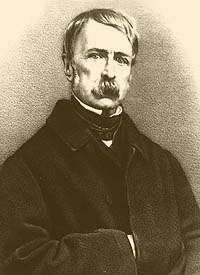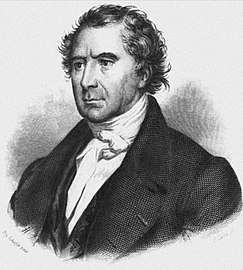Jules Bastide
Jules Bastide (22 November 1800, Paris, France – 2 March 1879) was a French politician.

Lawyer and revolutionary
Bastide studied law for a time, and was afterward engaged in business as a timber merchant. In 1821, he became a member of the French la Charbonnerie, modelled on that of the Italian Carbonari, and took a prominent part in the Revolution of 1830. After the July Days uprising, he received an artillery command in the National Guard. For his part in the riots in Paris (5 June 1832) on the occasion of the funeral of General Maximilien Lamarque, Bastide was sentenced to death, but he escaped to London.[1]
Journalist and statesman
On his return to Paris in 1834, he was acquitted. He occupied himself with journalism, and he contributed to the National, a republican journal of which he became editor in 1836. In 1847, he founded the Revue Nationale as a collaborative venture with Philippe Buchez, whose ideas had thoroughly infected Bastide. After the Revolution of February 1848 Bastide's intimate knowledge of foreign affairs gained for him a ministerial post in the provisional government, and, after the creation of the Executive Commission, he was made Minister of Foreign Affairs. At the close of 1848, he resigned his portfolio, and, after the coup d'état of December 1851, retired to private life.[1]
Writings
His writings include:
- De l'éducation publique en France (1847)
- Histoire de l'assemblée législative (1847)
- La République française et l'Italie en 1848 (1858)
- Histoire des guerres religieuses en France (1859)[1]
See also
References
-



